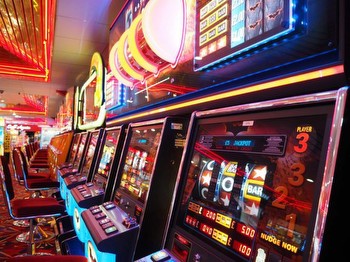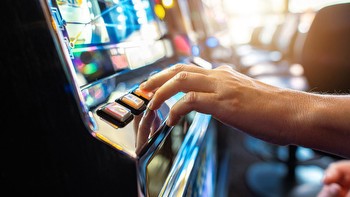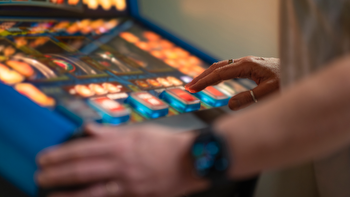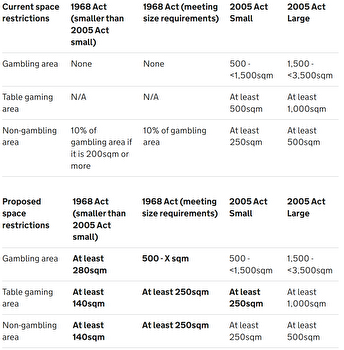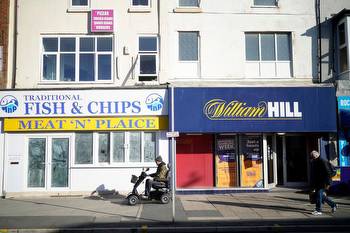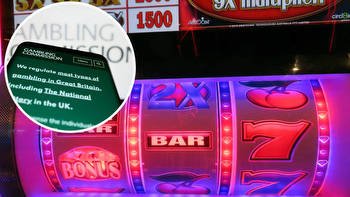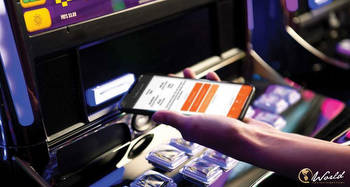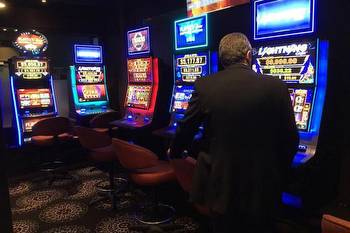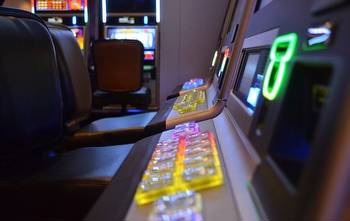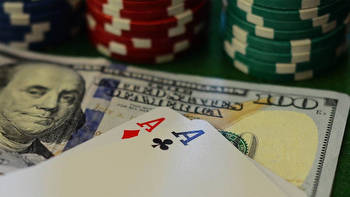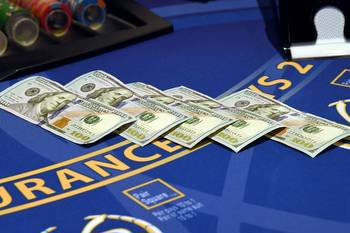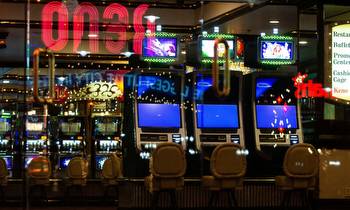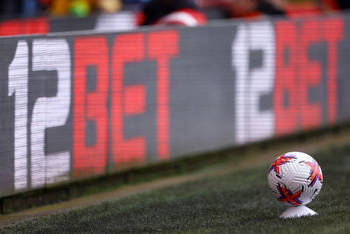Slot machines to go cashless as debit cards allowed
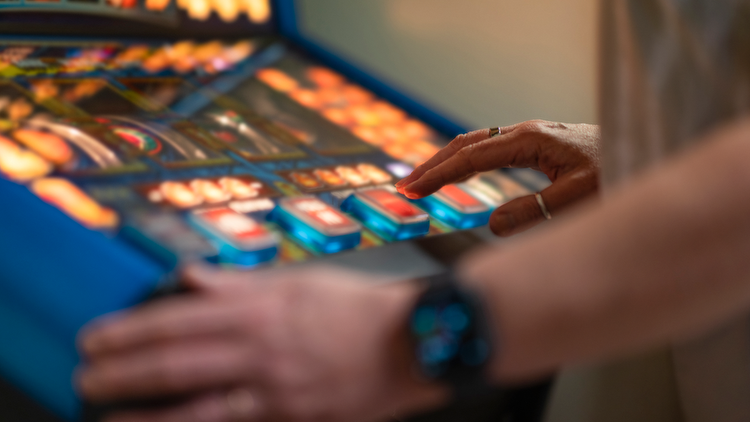
The government says it intends to let people use debit cards to gamble on slot machines.
The move will allow pubs, casinos and slot venues to compete in an increasingly cashless society, ministers argue.
Gamblers will still be banned from using credit cards in the machines.
And there will also be a cap on how much they can spend in one gambling session, with staff alerted when limits are hit.
Systems that require payment authorisation, such as Apple Pay, will be allowed, but otherwise contactless payments will remain banned.
The Betting and Gaming Council, an industry lobby group, welcomed the "much needed" changes and called on ministers to set out a "clear timeline" for the relevant legislation.
But Gambling with Lives, a charity that supports families bereaved by gambling-related suicide, said slot venues were "taking over our high streets" and card payments would make machines "even easier" to play.
"Anything that increases access to highly addictive machines cannot be seen as a positive," co-founder Liz Ritchie told the BBC.
"We instead need to look at how we make these machines safer, by reducing deposit limits and slowing spin speeds".
The changes have been introduced as part of a wider package, which the government says, will level the playing field with online betting.
Cashless gambling on gaming machines is currently limited to indirect payments via mobile apps, or by purchasing special tickets for machines.
Stake limits have been cut in recent years, with fixed-odds terminals in bookmakers' shops limited to a maximum bet of £2, and £1 for machines in pubs.
Direct payments from debit cards are not allowed, under legislation from 2007 designed to produce natural interruptions in play.
But the culture department, responsible for gambling laws, says the decline in the use of cash across society could see machines become "obsolete" whilst slot-style games remain "easily available online".
It added this would threaten the viability of bricks-and-mortar arcades, which "support jobs and have been adversely affected by the pandemic".
The department said it could also arrest a decline in machine income in pubs since Covid, with people increasingly paying for food and drink by card and not carrying cash.
Under the proposals, debit card payments will require authentication, such as chip and PIN or biometric verification of the type used for Apple Pay.
Like with cash, there will be a £20 limit on the amount a person can deposit onto a machine in one go, lowered for £2 for low-stake fruit machines, penny falls and crane grabs.
The government says players should have to wait at least 30 seconds after a payment is approved before depositing money onto a machine, to "broadly mirror" time to withdraw cash from an ATM.
There will also be mandatory limits per session, to be set following a separate consultation by the Gambling Commission, a regulator, triggering a 30-second cooling-off period.
Despite objections from the sector, staff working in pubs will be alerted when mandatory limits are hit, along with voluntary limits set by punters themselves. These will not apply to the lowest-stake machines.
The changes will be made via a type of legislation that comes into force automatically, and can only be blocked if the House of Commons or Lords objects within a 40-day window.
However it will only be drafted once the Gambling Commission consultation, to begin in the coming weeks and lasting three months, is complete.








